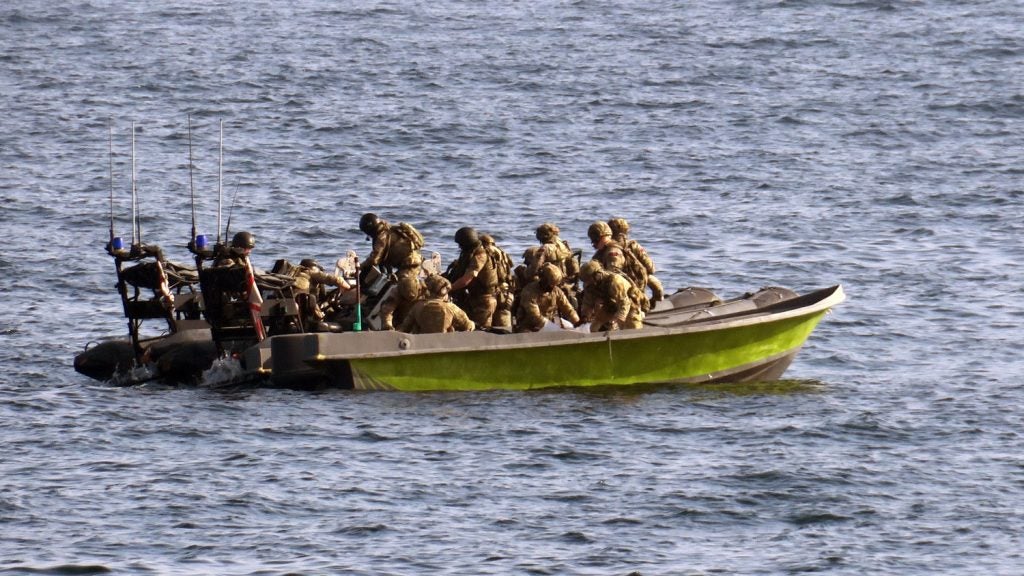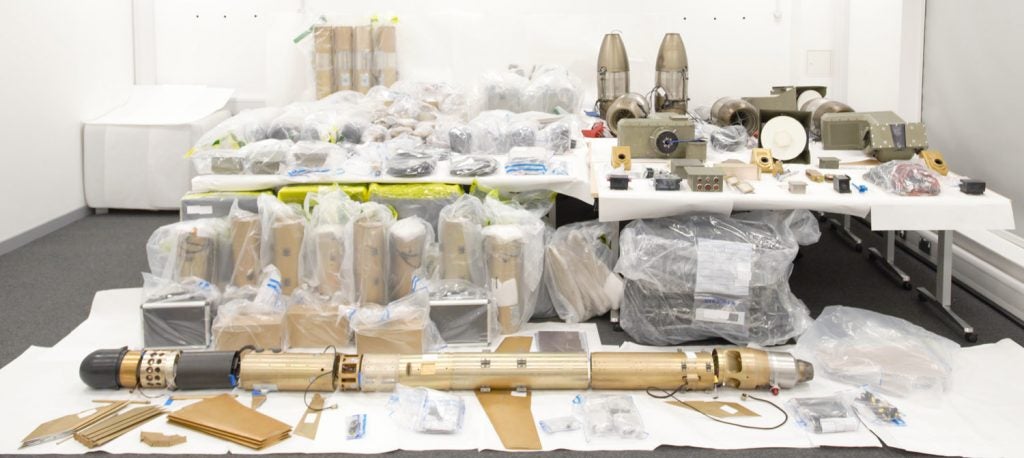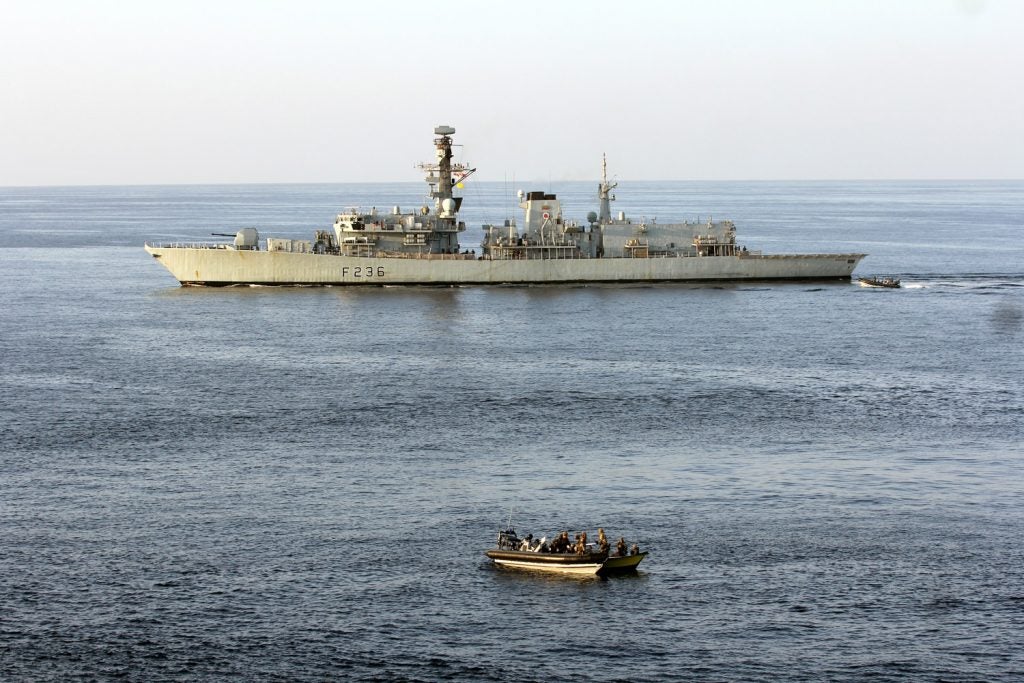UK Reveals Royal Navy Seizure Of Iranian Missiles Destined For Yemen
The United Kingdom revealed on 7 July that it had seized several shipments of advanced weapons including surface-to-air missiles and cruise missile engines in international waters off Iran’s southern coast earlier this year.
The two seizures took place in the early hours of 28 January and 25 February, and are the first time a British warship interdicted vessels carrying such “sophisticated weapons” from Iran.
On both occasions, HMS Montrose’s Wildcat helicopter detected small vessels “moving at speed away from the Iranian coast” while patrolling for vessels smuggling illicit goods, giving chase to the vessels and reporting that suspicious cargo was visible on the decks of the vessels. During the Feburary interdiction, a US Navy Seahawk from the USS Gridley was deployed to provide overwatch support during the intercept.
The vessels were then boarded and secured by a team of Royal Marines that approached the vessels using two rigid-hulled inflatable boats. Searches of the vessels resulted in the discovery of dozens of packages containing advanced weaponry, which were confiscated and brought back to HMS Montrose.

The seized packages were brought to the UK for technical analysis, which found that the shipments contained multiple rocket engines for the Iranian-produced 351 land attack cruise missile and a batch of 358 surface-to-air missiles. The seized weapons and components were inspected on 24 June by the Panel of Experts established pursuant to Security Council resolution 2140 (2014), which concerns the conflict in Yemen, with the panel also receiving a technical brief by Defence Intelligence analysts.
According to the Ministry of Defence, the 351 land attack cruise missile was used in the 17 January attack on Abu Dhabi by Yemen’s Houthi militants that resulted in the death of three civilians. The cruise missile, which has a range of 1,000km, is also said to be regularly used by the Iran-backed Houthis to attack targets in Saudi Arabia.

Minister for the Armed Forces James Heappey said:
“The UK is committed to upholding international law, from standing up to aggression in Europe to interdicting illegal shipments of weaponry that perpetuates instability in the Middle East. The UK will continue to work in support of an enduring peace in Yemen and is committed to international maritime security so that commercial shipping can transit safely without threat of disruption.”
U.S. Central Command Naval Forces stated that the vessels were intercepted on routes “historically used to traffic weapons unlawfully to Yemen”, with both Central Command Naval Forces and the Ministry of Defence noting that the shipments were in contravention of UN Security Council resolution 2216 (2015). The regulation imposed an arms embargo on the Houthis, in addition to calling for the militants to cease their now seven-year old uprising against Yemen’s government, which has seen the Houthis take over significant parts of the country and a Saudi-led intervention that has been repeatedly criticized for indiscriminate targeting resulting in heavy civilian casualties.
The Ministry’s report also comes shortly after Iran’s Islamic Revolutionary Guard Corps claimed to have detained the British deputy ambassador to Iran, Giles Whitaker, the husband of Austria’s cultural attaché, and a Polish scientist on allegations of espionage. The Austrian government and the UK’s Foreign Office have denied the claims, with British ambassador to Iran Simon Shercliff saying that Whitaker had actually departed Iran in December 2021 at the end of his posting. Warsaw, however, has confirmed that a “highly reputed scientist” was detained in September 2021, saying that it was working to secure his release.

